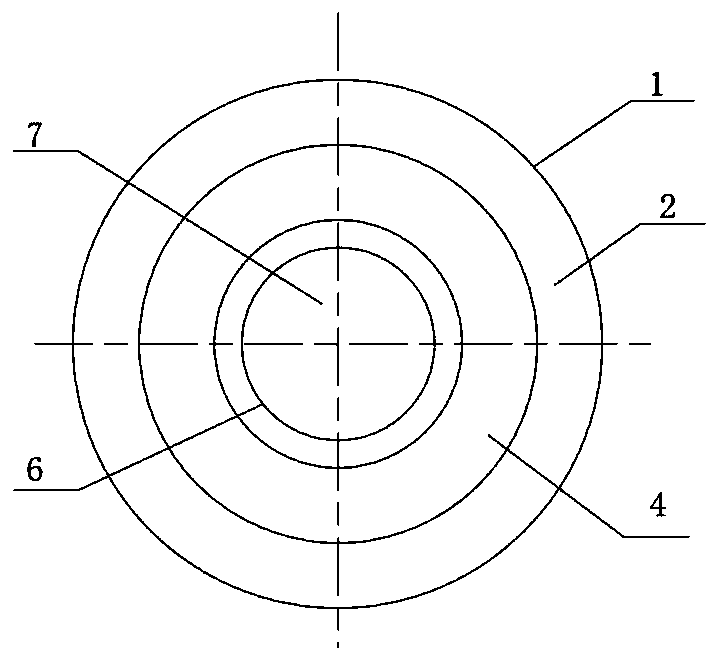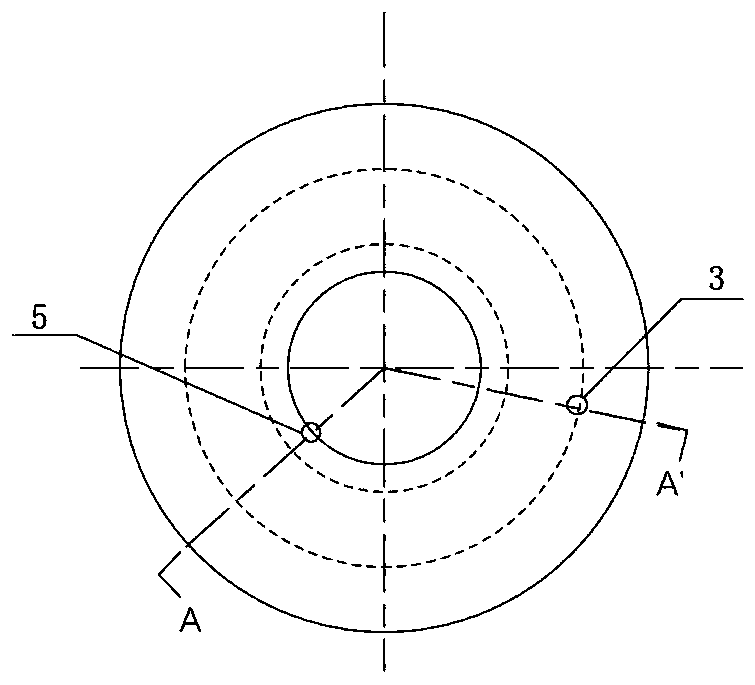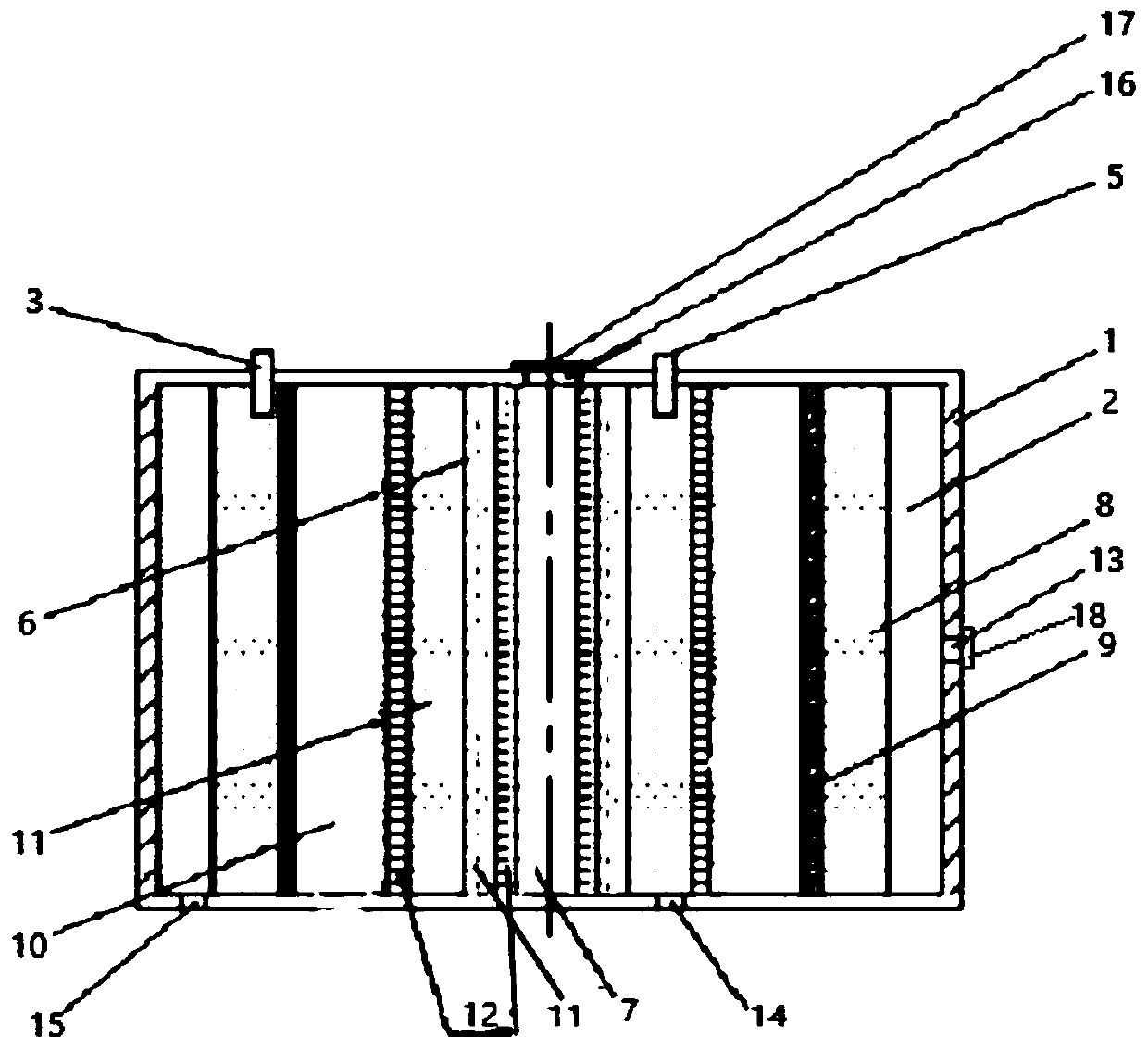Black phospho-TiO2 nanotube/Ti sensitive electrode hydrogen sulfide sensor
A hydrogen sulfide sensor and sensitive electrode technology, applied in nanotechnology, nanotechnology, material electrochemical variables, etc., can solve the problems of high cost, impact on application, easy poisoning of Pt, etc., achieve high anti-poisoning and anti-interference ability, good Selective, easy-to-operate effects
- Summary
- Abstract
- Description
- Claims
- Application Information
AI Technical Summary
Problems solved by technology
Method used
Image
Examples
preparation example Construction
[0030] 2) TiO 2 Preparation of nanotubes / Ti: anodize the porous titanium tubes obtained through the pretreatment in step 1) in an electrolyte, the composition of the electrolyte: 0.5-1% HF, 1mol / L H 2 SO 4 The electrolysis potential is 20V, and the electrolysis time is 30-120min; after electrolysis, wash with deionized water, dry, and bake in a muffle furnace at 500°C for 3h, so that the inner and outer surfaces of the porous titanium tube generate TiO 2 nanotubes, to get TiO 2 Nanotube / Ti;
[0031] 3) Heat-treat red phosphorus at 200°C for 2 hours to remove oxides and impurities on the surface, and grind for 15 minutes after cooling;
[0032] 4) Black phosphorus-TiO 2 Preparation of Nanotube / Ti Sensitive Electrode: TiO 2 The nanotube / Ti is placed in a tube furnace, and the red phosphorus obtained in step 3) is placed on its inner and outer surfaces, at a rate of 5 cm per minute 3 Pass argon gas into the tube furnace at a high rate, raise the temperature to 600-1000°C, k...
Embodiment 1
[0043] (1) Pretreatment of the porous titanium tube: Ultrasonic degreasing in acetone for 15 minutes, then cleaning with methanol or ethanol; then use 400g / L CrO 3 and 350g / L of H 2 SO 4 Treat for 3 minutes, ultrasonically clean with double-distilled water for 3 times, treat with 1mol / L HF for 10 minutes, ultrasonically clean with double-distilled water for 3 times, and dry.
[0044] (2)TiO 2 Preparation of nanotubes / Ti: Anodize the porous titanium tubes obtained after the pretreatment in the electrolyte, the composition of the electrolyte: 0.8% HF, 1mol / L H 2 SO 4 ; The electrolysis potential is 20V, and the electrolysis time is 80min; after the electrolysis is completed, wash with deionized water, dry, and bake in a muffle furnace at 500°C for 3h to make the inner and outer surfaces of the porous titanium tube generate TiO 2 nanotubes, to get TiO 2 Nanotube / Ti.
[0045] (3) Heat-treat red phosphorus at 200°C for 2 hours to remove oxides and impurities on the surface, a...
Embodiment 2
[0050] (1) Pretreatment of the porous titanium tube: Ultrasonic degreasing in acetone for 15 minutes, then cleaning with methanol or ethanol; then use 400g / L CrO 3 and 350g / L of H 2 SO 4 Treat for 3 minutes, ultrasonically clean with double-distilled water for 3 times, treat with 1mol / L HF for 10 minutes, ultrasonically clean with double-distilled water for 3 times, and dry.
[0051] (2)TiO 2 Preparation of nanotubes / Ti: Anodize the porous titanium tubes obtained by the pretreatment in the electrolyte, the composition of the electrolyte: 0.8% HF, 1mol / L H 2 SO 4 ; The electrolysis potential is 20V, and the electrolysis time is 80min; after the electrolysis is completed, wash with deionized water, dry, and bake in a muffle furnace at 500°C for 3h to make the inner and outer surfaces of the porous titanium tube generate TiO 2 nanotubes, to get TiO 2 Nanotube / Ti;.
[0052] (3) Heat-treat red phosphorus at 200°C for 2 hours to remove oxides and impurities on the surface, and...
PUM
 Login to View More
Login to View More Abstract
Description
Claims
Application Information
 Login to View More
Login to View More - R&D
- Intellectual Property
- Life Sciences
- Materials
- Tech Scout
- Unparalleled Data Quality
- Higher Quality Content
- 60% Fewer Hallucinations
Browse by: Latest US Patents, China's latest patents, Technical Efficacy Thesaurus, Application Domain, Technology Topic, Popular Technical Reports.
© 2025 PatSnap. All rights reserved.Legal|Privacy policy|Modern Slavery Act Transparency Statement|Sitemap|About US| Contact US: help@patsnap.com



